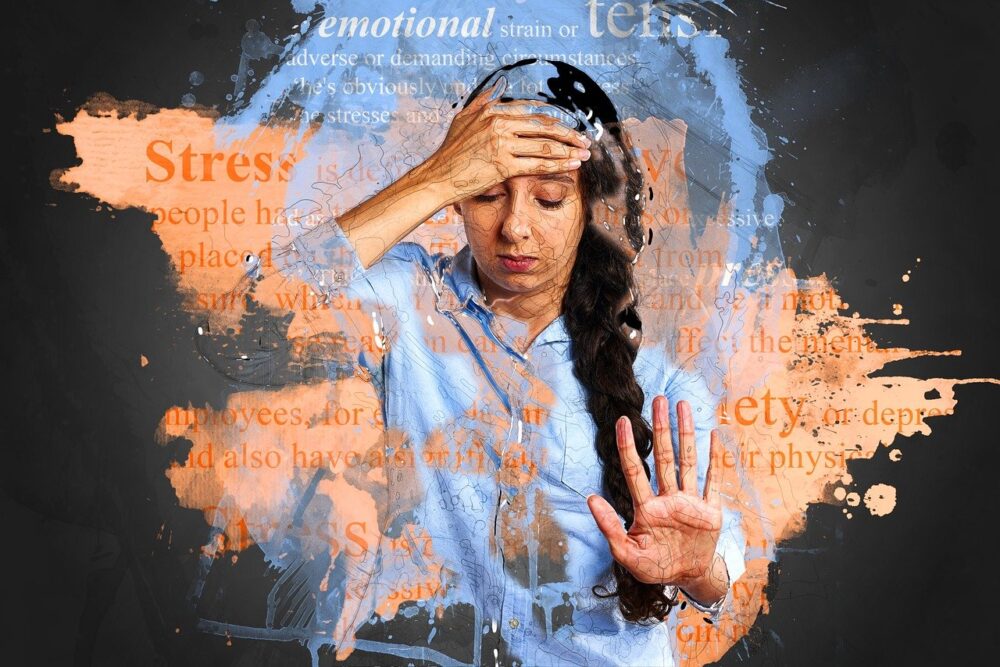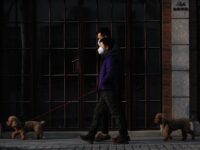An overwhelming sense of dread descends upon you like a dizzying fog. Your pulse races, your breathing feels shallow, and there’s a growing tightness in your chest. For the some two million Americans suffering from panic disorder every year, this picture is all too familiar. As the coronavirus pandemic rages on, shaking off such anxiety can be increasingly difficult. The ever-looming health concerns that many anxiety sufferers face now have a stronger basis in reality, and for a good deal of people, every panic attack raises the question: What if this time I have COVID-19?
The COVID-19 pandemic has wrought havoc in communities across the nation, taking not only a physical toll on the millions who have been infected but also an emotional toll on countless others in its wake. As it is, the United States has a highly anxious populace — approximately 19 percent of adults in this country will experience an anxiety disorder in any given year. Considering the addition of months of social isolation, stress, and financial strain, it’s no wonder this pandemic has left citizens struggling with unprecedented levels of anxiety.
As it is, the United States has a highly anxious populace — approximately 19 percent of adults in this country will experience an anxiety disorder in any given year.
For those with panic disorder, the familiar shortness of breath that accompanies a panic episode is now considered a telltale symptom of COVID-19 infection. The psychological stress of fearing COVID-19 further drives the physiological stress, creating a vicious cycle of anguish and adrenaline. Of course, panic alone poses no imminent threat to physical health. However, to the anxious brain, sensible reason is often given little attention. Rationality isn’t always sufficient to turn off that fight-or-flight response, and the what-ifs can feel like a death sentence.
But the anxiety goes beyond worrying about the physical disease itself. Social distancing guidelines have majorly impacted people’s coping mechanisms, and being stuck at home for weeks on end enabled many to fall into unhealthy habits with the potential to worsen anxiety. For those with generalized anxiety disorder (GAD), excessive, persistent worry was a daily issue even before one of the biggest disease outbreaks in recent history. From agonizing over the safety of at-risk loved ones to struggling with food and housing insecurity, the ongoing stresses of the pandemic may understandably exacerbate GAD symptoms. For those with social anxiety disorder, quarantine has posed significant hindrance to their treatment progress. Patients who may have started to see symptom improvements must now grapple with the inevitable setbacks that result from an extended period of little to no social interaction.
We as individuals cannot fully control the course of the pandemic or eliminate all the stressors in our lives. However, we can control how we cope with our stress.
In many respects, these emotional stressors can’t be eradicated until the COVID-19 pandemic is contained. This effort requires a combination of community and governmental efforts — such as mask-wearing, free testing, and rent relief. While leadership failures have impeded the ability of the United States to bounce back from COVID-19, we can still maintain agency over our mental well-being. We as individuals cannot fully control the course of the pandemic or eliminate all the stressors in our lives. However, we can control how we cope with our stress. Anxiety disorders are some of the most treatable mental illnesses. Therapy, medication, or a combination of both are capable of bringing about considerable symptom reduction, if not complete remission. Cognitive behavioral therapy (CBT) is one of the most common intervention methods for patients with anxiety, and research has shown that even CBT delivered through telehealth services is extremely effective.
The COVID-19 pandemic has forced us to adjust to an unprecedented way of life, and emotional ramifications from this adjustment are far from a singular experience. While anxiety relapses can be discouraging, seeking help has aided many on the path to wellness as they adjust to the pandemic. Mental health, just like this country, is capable of recovery.
Image source: Pixabay






